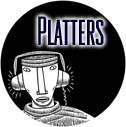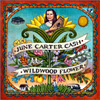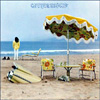
Comment
on this story
|
 |

This Week: June's last songs, Neil's lost ones, and some Hot Shit
June Carter Cash

Wildwood Flower (Dualtone)
When June Carter Cash recorded the songs on this album in late 2002 and early 2003, she couldn't have known that it would reach stores the same week that her husband, Johnny, died — or that she herself would already be four months in the grave. But she surely suspected something of the sort.
Wildwood Flower arrives, then, as both a last testament and an inheritance. It's no accident that it is made up almost entirely of songs originally written and recorded by the Carter Family—A.P., Sara, and Maybelle (June's uncle, aunt and mother, respectively). This is the music that was passed on to her, and she's passing it on in turn. It's a family project all the way through. Johnny Cash is close to hand, singing on most of the tracks, along with June's daughter Carlene Carter, her cousins Joe and Janette, and even June's ex-son-in-law Marty Stuart. June and Johnny's son John Carter Cash produced the sessions. Family friends Norman and Nancy Blake provide the picking and strumming.
What's most striking is June's coarse and rugged voice, years removed from the soda-pop fizz of the Carter Girls' bright harmonies. There's no vanity at all in her good-humored rasp; she misses as many notes as she hits, but she loves the music so much that it hardly matters. The songs are familiar ("Keep on the Sunny Side," "Kneeling Drunkard's Plea," "Cannonball Blues") but vivid in their cragginess.
The brief spoken-word intros also remind you that June was a born showgirl, sometimes hammy, sometimes hilarious and always at home in front of a crowd. The show-stopper and heartbreaker is "Will You Miss Me?," with Johnny singing over her shoulder. Will we miss them? Oh yes.
—Jesse Fox Mayshark
Neil Young

On the Beach (Reprise)
The early 1970s were tough for Neil Young. Danny Whitten, the guitarist for his part-time backing band Crazy Horse, died of a drug overdose in 1972. A year later, one of Young's roadies, Bruce Berry, died from OD. On his next tour, Young perplexed his fans with raw, abrasive performances of songs from the then-unreleased Tonight's the Night. Then his label rejected Tonight's the Night, or, according to alternate stories, Young pulled it back.
He responded with On the Beach, a moody, dark record, drenched with a kind of existential defeatism and venom directed at himself ("I'm a vampire, baby/ Sucking blood from the earth") and his critics ("They don't mention happy times/ They do their thing, I'll do mine"). It was, for many years, a sort of lost classic, never available on compact disc until Reprise and Young finally authorized its digital reissue (along with three other late-'70s and early-'80s albums: American Stars 'N Bars, Re*Ac*Tor and Hawks and Doves) for this year.
It needed to be done. On the Beach is a reflective counterpoint to the searing catharsis of Tonight's the Night, which was finally released in 1975. It's also one of his finest and most forlorn albums. There are fiery guitar work-ups—"Walk On," "Revolution Blues," "Vampire Blues"—but the quieter moments are the heart of the album. "See the Sky About to Rain," "Motion Pictures" and "On the Beach" are charged by Young's idiosyncratic, atmospheric guitar, adding weight to the spare arrangements and lonely vocals. Even backed with a rotating cast of musicians (Ralph Molina and Billy Talbot, the surviving members of Crazy Horse, Levon Helm and Rick Danko of the Band, and David Crosby), Young always sounds alone here.
—Matthew Everett
Quasi

Hot Shit (Touch & Go)
Don't let Quasi's Northwestern "superband" status fool you. (The group is the brainchild of Sleater Kinney's Janet Weiss and Elliott Smith sideman Sam Coomes). And forget the White Stripes-esque divorcee thing (Weiss and Coomes were once married). Sure, this kind of dirt makes excellent fodder for hacks like myself. But let's get on to the music.
The title Hot Shit pretty much says it all. This CD is one of those rare gems that combines studio wizardry with the X-factor of haphazardness, serving up brilliant results that seem like they came easy. This is one of those albums where the studio becomes an instrument, sort of like George Martin's work with the later day Beatles or the Flaming Lips' The Soft Bulletin perhaps.
Excellently sculpted pop hooks and top-notch playing that is, well, tight-but-loose, if that makes any sense, meld with an ironic and somewhat angry outlook on the travails of modern life.
The Flaming Lips comparison might be too easy, mainly because of Coomes' trebly, near-but-not-quite-there vocals. And, of course, the rich instrumentation. But it's really Weiss' drumming that stands out: she pounds the skins like a lead instrument, taking great risks and coming up with some Keith Moon-style riffs in the process.
Hot Shit would go down well with anyone who likes their pop served up on a grandiose scale. Hi-fi recording as applied to the lo-fi aesthetic, if you will.
—John Sewell

September 25, 2003 * Vol. 13, No. 39
© 2003 Metro Pulse
|